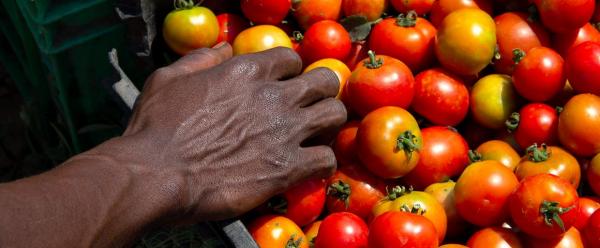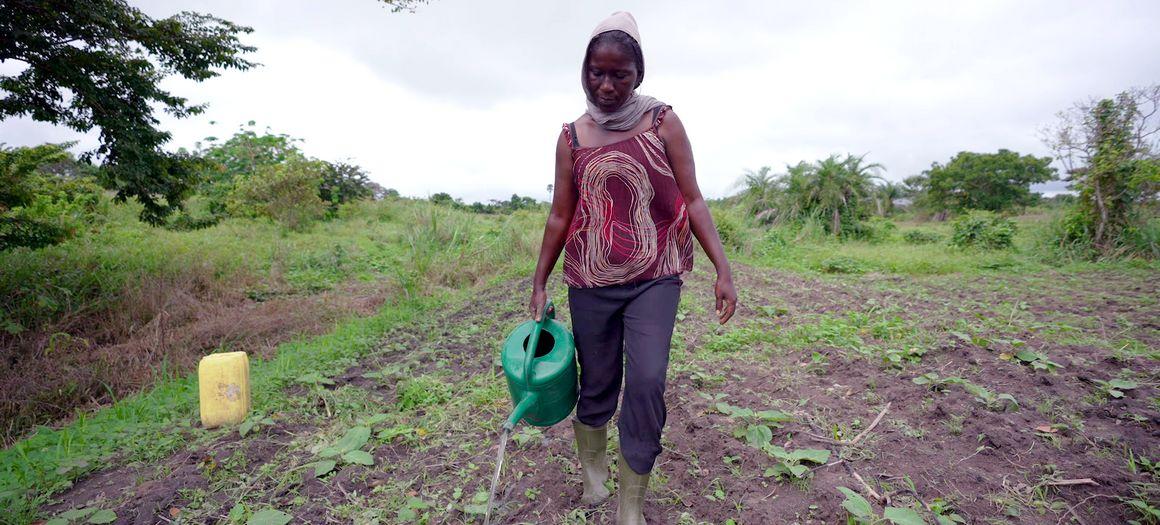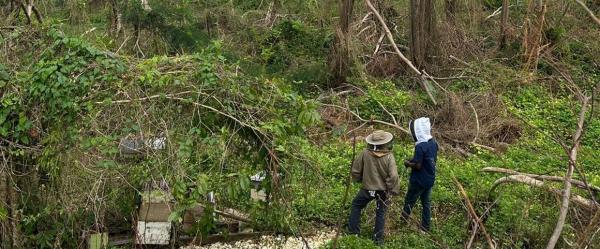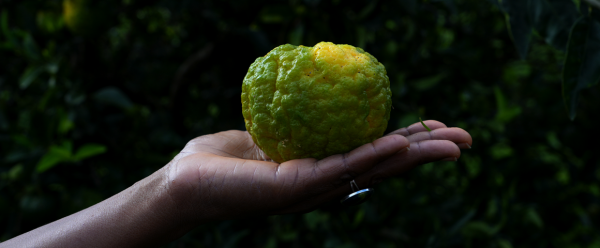Ivory Coast is a world leader in terms of cocoa, cashew nut and rubber production, but is finding it hard to feed its 29 million people. Vegetable production falls well short of demand, which has resulted in increased imports. In this context, monoculture and chemical input use have reached their limitations, and growing numbers of farmers are now switching to agroecological practices.
By diversifying the crops I grow, "I always win in one way or another"
After a few years, those farmers are already reaping the benefits: lower production costs, higher yields and self-fertilizing soils.
"Agroecology, and particularly crop diversification, has made me feel much more secure", says Auguste Kouamé, an Ivorian farmer. "I always win in one way or another".
It is this trend that the MARIGO project is working to support and drive. The project is coordinated by CIRAD and associates researchers, training staff, producers and consumers, to pool their knowledge and skills.
A radical change of cropping system
"Agroecology can provide immediately available, local solutions that are also sustainable", says CIRAD's Thibaud Martin.
The project will serve to share information, pinpoint innovative solutions suitable for sharing, and implement them.
Moving towards agroecology means building skills. It is a radical change of cropping system that requires sound knowledge. The project will be helping farmers by providing education sessions in schools, professional training centres and pilot farms at four sites. In particular, it is working with 48 market gardeners who practise diversified farming.
The aim is also to convince policymakers and civil society of the merits of supporting agroecological market garden production systems and of possibly introducing a national organic label for local products and farmer networks. In relation to this, the first regional meeting of participatory guarantee systems (PGS) in West and central Africa was held in Ivory Coast from 20 to 23 February 2023. The meeting was organized by CIRAD, with support from Nitidae and Agropolis Fondation. It enabled an exchange of knowledge and experiences of setting up and running PGS.
Participatory guarantee systems are a non-market certification scheme based on peer assessment. By fostering the creation of networks of stakeholders within a given agricultural area, they are geared towards progress. This dynamic, supported by CIRAD, has inspired similar schemes in different sectors, including construction and energy.
The MARIGO project is scheduled to run for four years, with funding from the EU DeSIRA programme. It is led by a consortium of research and development partners.





























